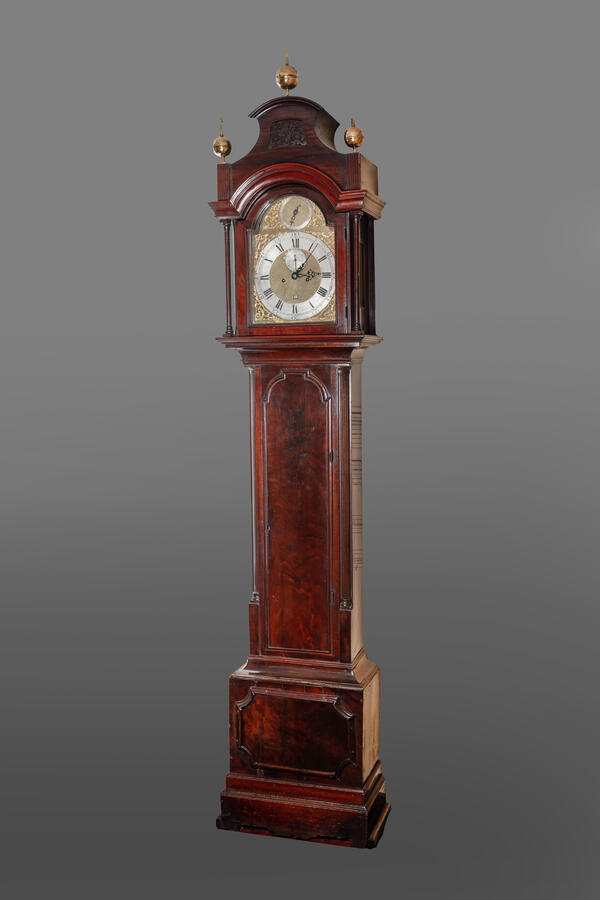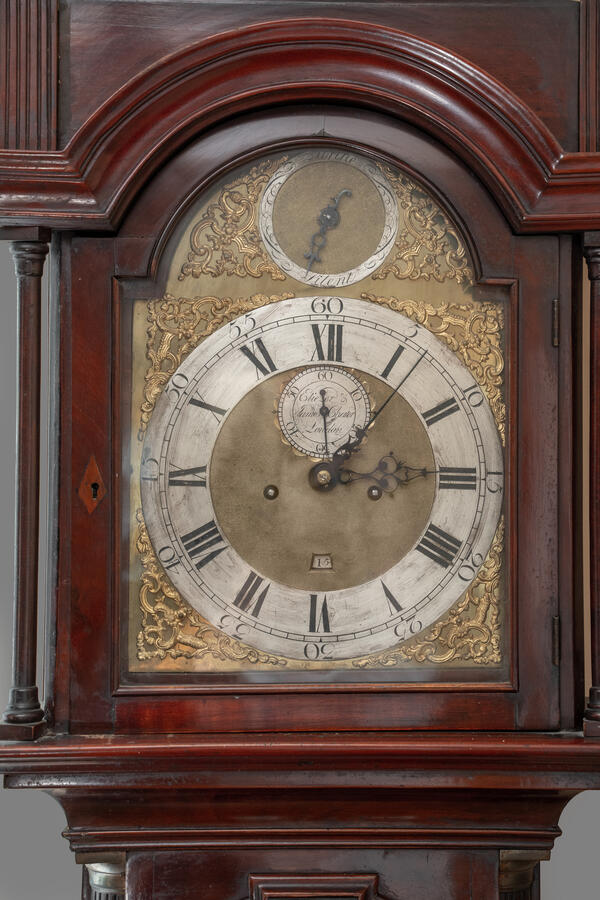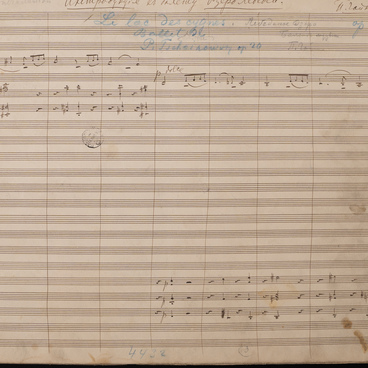The grandfather clock with striking mechanism was donated to the Museum of Music by the pianist Natalia Vladimirovna Burmeister in 2017. It once belonged to the family of her great-grandfather Andrey Petrovich Tchaikovsky, a cousin of the great composer Pyotr Ilyich Tchaikovsky.
The previous owner of the clock was Andrey Tchaikovsky’s father — Pyotr Petrovich Tchaikovsky, the brother of Ilya Petrovich (the composer’s father), or his wife Yevdokia (nee Berens). Pyotr Tchaikovsky always maintained close relations with his cousins.
At the end of February 1893, Andrey, at that time a colonel, turned to his world-famous relative with a request to compose a March for the 98th Yuriev Infantry Regiment. Tchaikovsky very quickly fulfilled the request, composing the March, and later a trio to it.
The mahogany veneered case is completed with a rounded “roof” decorated with three brass balls with pikes (spires). The front panel is a glazed door. The middle part is made in the form of an elongated rectangular prism on a wide base. The finials of wooden decorations imitating columns in the middle part of the case are finished with yellow metal. The mechanism has wooden plates and wheel axles, with two weights to wind the clock once a week. The mechanism strikes every hour. The strict elegance of the English clock embodied the idea of a rational attitude to time.
The decorative elements of the case are made in the style of Classicism which is distinguished by rigor and conciseness: only the columns in the corners and bronze cones on top embellish the case. At the same time, Baroque elements are evident in the dial plates of the clock, which are decorated with cast bronze overlays with an openwork pattern in the form of floral curls, as well as in the dial scale, which is a brass silver-plated circle with engraved Roman numerals for the hours and Arabic ones for the minutes filled with special mastic. In the old days, such English chronometers were often called “clocks in a cabinet case”.



